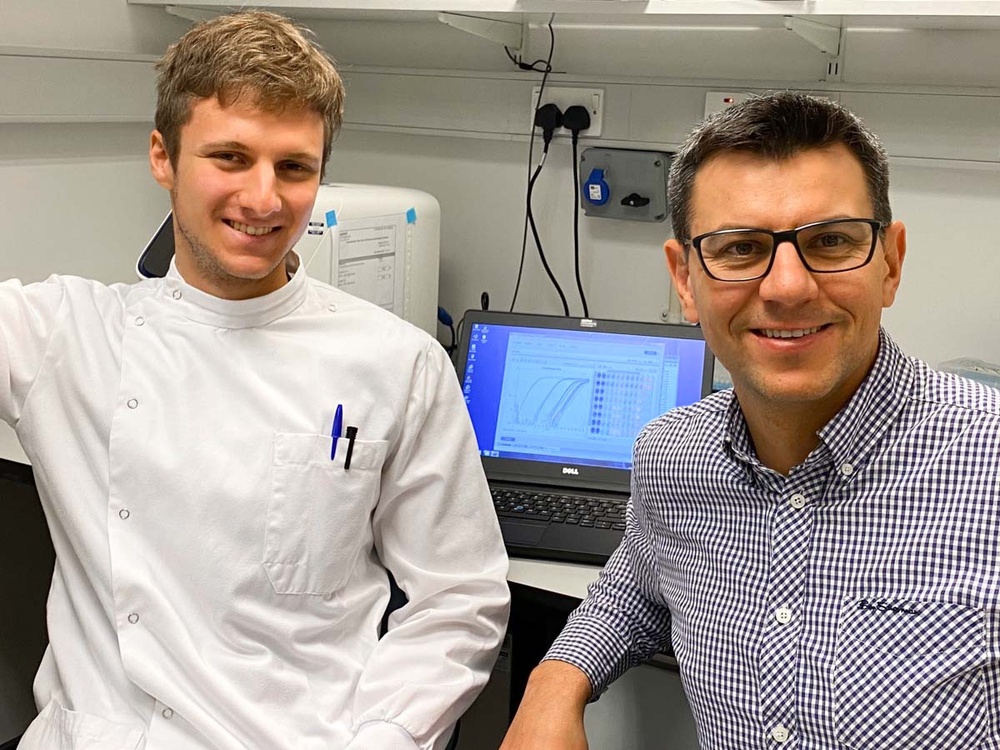Mitochondrial gene therapy
Location: Mitochondrial Biology Unit, University of Cambridge
Research Lead: Dr Michal Minczuk
Supporting medical research into mitochondrial diseases is a fundamental aspect of our work at The Lily Foundation. Not only is research our best hope of finding a cure, it also helps improve lives today. In recent years we have seen major advances in the diagnosis and clinical management of mitochondrial disorders, resulting in real positive change for patients and their families.
Last year we invested £250,000 into research, bringing our total research funding since the charity launched to over £2 million. We currently fund 11 research projects exploring different potential treatments for mitochondrial diseases. We post regular updates about these projects on our website, newsletter, Facebook and Twitter, including this report from the University of Cambridge.
What's the purpose of this research?
Mitochondrial gene editing is a promising therapeutic technology in the field of mitochondrial disease. The robustness of this technology will allow for it to be used as a therapeutic technique for a wide variety of diseases caused by mutations to the mitochondrial genome. The technology is currently being optimised by pre-clinical research at the Minczuk lab and in the future could lead to the development of cures for a wide variety of mitochondrial diseases by altering the genetic make-up of dysfunctional mitochondria.
How does it work?
Mitochondria contain multiple copies of their own genome, the mitochondrial DNA (mtDNA). The genetic health of a mitochondrion is dictated by the proportion of healthy and mutated mtDNA molecules. Mitochondrial gene editing works by delivering engineered DNA cutting proteins (mtZFNs) to the mitochondria which selectively target mutated disease-causing mtDNA molecules. By eliminating these mutated mtDNA molecules specifically, the function of the mitochondria is then restored when the remaining healthy mtDNA repopulates.
How has Lily research funding helped?
The Lily Foundation is sponsoring a full PhD fellowship allowing further research into the delivery of these therapeutic proteins into muscle and brain tissues in a murine model of mitochondrial disease, which will serve as vital information in pre-clinical trials.
What stage is the project at now?
The mtZFN technology has been implemented successfully in cells for many years and was able to target several types of mtDNA mutations by reconfiguring the proteins used to bind the DNA. The most recent advances published in 2018 showed delivery of the engineered mtZFN proteins to mouse heart and subsequent reduction in the quantity of mutated mtDNA molecules, leading to a reduction of the disease phenotype in the treated mice. The same delivery approach that was used to target mutations in the heart will now be used to deliver the constructs to the brain and muscles of diseased mice to verify that mitochondrial genes can also be safely altered in those tissues specifically.
What are the most ground-breaking aspects of this project?
The mtZFN system is compact, allowing it to be delivered using viral vectors to tissues that are specifically affected by mitochondrial disease in a very selective way. This increases its usability as in vivo gene therapy for mitochondrial disease patients. The technology is also highly programmable, which means that it can be reconfigured to target a wide range of mitochondrial diseases caused by mutations in mtDNA. Since this therapy uses genetic modification, it has the potential to act not simply as a treatment but as a cure by resolving the underlying genetic mutation.
What is the research team saying?
Dr Michal Minczuk, the project's principal investigator at the Mitochondrial Biology Unit in Cambridge, said: "Our laboratory is delighted to have its application for a grant from The Lily Foundation accepted and to have received the funding to support a full post-graduate studentship at the University of Cambridge. Their support, in addition to the existing funding from the Medical Research Council, will help us to deliver the pre-clinical programme aimed at testing our therapeutic approach for a future cure for mitochondrial diseases. We are looking forward to working together with The Lily Foundation on this important endeavour."
How can I help?
We are able to fund life-changing research projects like the ones mentioned here thanks to the incredible generosity of our donors and supporters. This project would not have been possible without a generous donation from My Mito Mission. If you would like to donate to our research programme, or join us in raising awareness about mitochondrial disease, please visit our home page to find out how. If you belong to a company or organisation that would like to be involved, please email [email protected].

